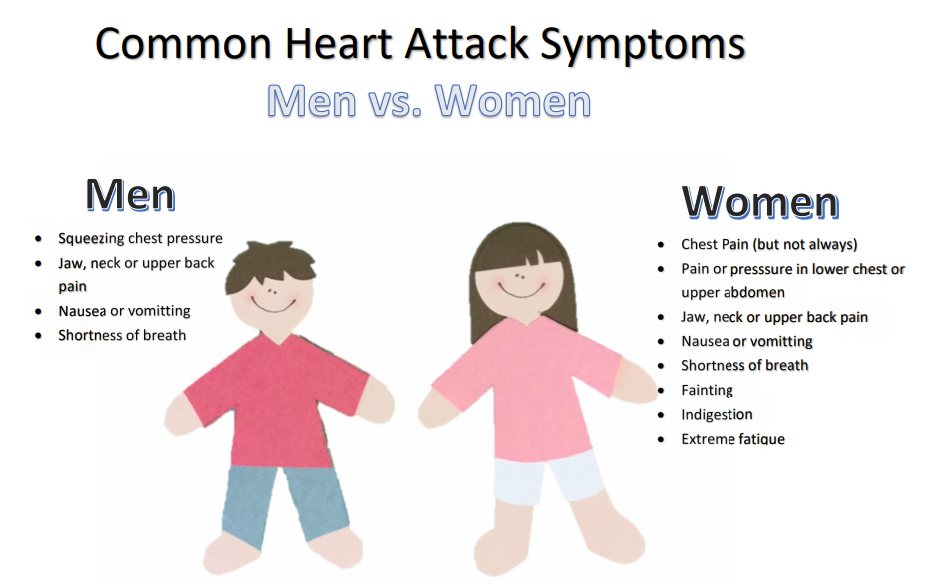According to CDC statistics, heart disease is the number one cause of death for women in the United States. Although heart disease is more often associated with men, in reality about the same number of women and men die each year from heart disease in the U.S. However, heart attack symptoms in women may cover a broader spectrum compared with symptoms in men. Though women may experience the “classic” heart attack symptoms of chest pressure or shortness of breath just as men do, they also may experience other symptoms instead.

Heart Disease Risk Factors in Women
Many risk factors for coronary artery disease like high blood pressure, high cholesterol, and obesity affect both women and men. However, other factors can contribute to the development of heart disease in women. These risk factors include:
- Pregnancy complications – Recent research suggests that experiencing hypertension and diabetes during pregnancy, as well as early delivery, can increase the mother’s long-term risk for diabetes and high blood pressure and consequently make it more likely that women will develop heart disease.
- Family history of early heart disease – This appears to be a greater risk factor for women than men.
- Diabetes – Statistics show that women with diabetes are more likely to develop heart disease than men with diabetes. Additionally, because diabetes can change the way you experience pain, you’re at greater risk of having a “silent heart attack” (or heart attack with no symptoms)
- Smoking – Smoking presents a higher risk of heart disease in women than men.
- Mental Health – Factors like stress and depression affect women’s hearts more than men’s. Depression can make it difficult to follow recommended treatments or lead a healthy lifestyle.
- Inactivity – Leading a mostly sedentary lifestyle with little or no physical activity is a major risk factor for heart disease. Some studies suggest women may be less active than men.
- Inflammatory diseases – Both women and men who experience inflammatory diseases like Lupus or rheumatoid arthritis can be at an increased risk for heart disease.
Lower your risk of heart disease by eating healthy, staying active, lowering stress, limiting alcohol, and not smoking. It also helps to find a health partner to assist you through the process. A friend, family member, or co-worker can be a good partner for getting more physically active and sticking with a healthy plan. To learn more about how to lower your chance for heart disease, ask your health provider questions about heart health, and make sure you know the symptoms of a heart attack.
At River Bend Medical Associates we are here to answer your heart health questions, help you with creating a heart-healthy plan, or attend to any of your other coronary health concerns. Our healthcare approach emphasizes kindness, friendliness, and respect in communicating with all of our patients. If you have been diagnosed with heart disease or you suspect you may have it, please call our family practice or go to the “Contact Us” page here on our website, or call 916-392-4000 for more information about how River Bend Medical Associates can help.

